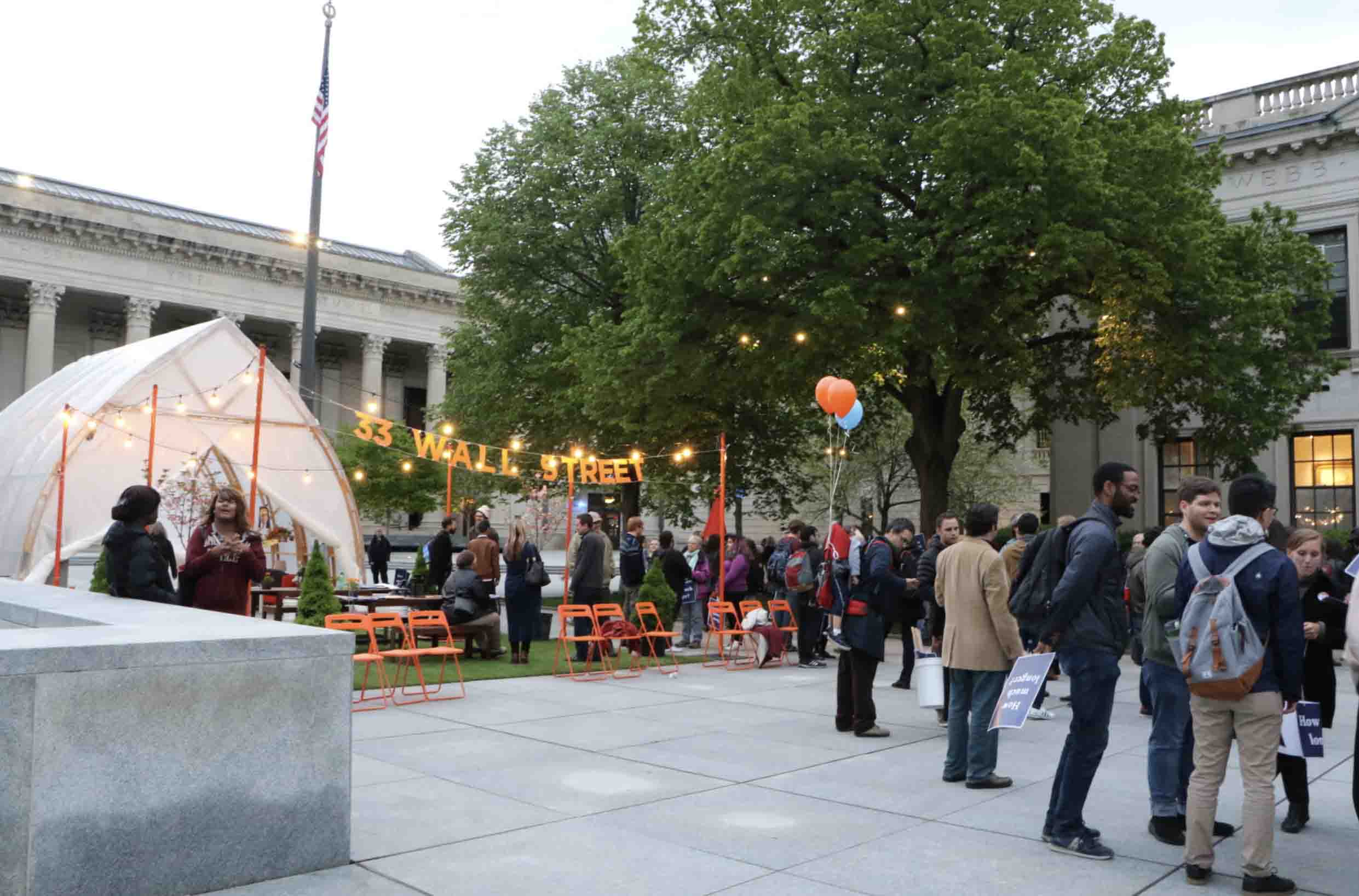
With a 3-2 Republican majority on the National Labor Relations Board and a Republican nominee as the Board’s general counsel, the future seems dim for Local 33, Yale’s graduate student union.
Local 33 won labor elections in eight academic departments last spring, but the University has refused to come to the table as it appeals the legal foundation of the union elections. The ruling on those appeals will be made by an NLRB different from the one that laid the groundwork for the Local 33 elections with a landmark decision involving Columbia University in August 2016.
Since his inauguration in January, President Donald Trump has placed two new, anti-union Republicans on the five-member NLRB Board. These additions give Republicans a majority on the Board — a boost to Yale and other private universities like Yale that hope to prevent graduate students from unionizing on their campuses, experts say.
William Gould, a former chairman of the NLRB, said the new iteration of the labor board will likely reverse many of the board’s Obama-era decisions, including, almost certainly, the Columbia case.
“The Columbia case is a low-hanging fruit,” Gould said. “The new board will move quick on it.”
In addition to the two Republican appointments, Trump’s nominee for the NLRB’s general counsel, Peter Robb, who has the authority to investigate and prosecute unfair legal practice cases, is awaiting a hearing from the Republican-controlled Senate.
Yale is not the only school potentially benefiting from a Republican-majority labor board. Harvard graduate students voted against unionizing last November, but the university’s graduate student union appealed to the NLRB to invalidate that vote, claiming that Harvard tampered with the election. John Walsh, regional director of the NLRB, decided in favor of the graduate student union. Harvard then filed an appeal to the NLRB in August asking that Walsh’s decision be invalidated — an appeal that is now in the hands of the new labor board.
Walsh had previously allowed Local 33 to hold department-by-department elections at Yale, an unconventional approach to graduate student unionization. If the NLRB goes on to repeal the decision to allow Local 33 to unionize on a departmental basis, it will force Local 33 to change its unionization strategy. And if it reverses the 2016 ruling on the Columbia case, the union will not be able to form an officially recognized union.
Labor experts do not believe the two decisions will last long under the new NLRB. According to Duke Law professor Dan Bowling, both cases are among the most controversial labor decisions made during the Obama-era and will soon be reversed. He added that reversing the decisions would illustrate good legal reasoning rather than partisan politics, as a strong argument for reversal can be drawn from the National Labor Union Act.
“The mechanism, processes and terms of the statute are designed more for traditional workplaces than students who work in academic institutions while pursuing a degree,” Bowling wrote in an email. “I don’t think a person getting a PhD in English literature (I say this as a former English major) should be governed by the same workplace laws as a steelworker, which is the position of Yale University in its briefs. Their primary mission is academic.”
Senator Robert Wagner, who sponsored the Labor Act, did so before the debate about whether graduate students should unionize began. But Angela Cornell, a professor at Cornell Law School, said it is clear from Wagner’s writings that he would support the efforts of graduate students who hold teaching jobs to unionize.
Still, Cornell said, she would not be surprised to see the NLRB reverse the decision on the Columbia case in the next six to eight months.
The only option left for Local 33 if the board moved to reverse the Columbia case would be to pressure the University to recognize the graduate students’ right to associate under the First Amendment, Cornell said.
“The right to associate is fundamental, recognized extensively in international law,” Cornell said. “Institutions of higher learning should just do the right thing and negotiate with graduate students in good faith. We want to serve as models to other employers.”
After Yale refused to negotiate with Local 33 following the elections on Feb. 23 that saw eight departments vote to unionize, Local 33 President Aaron Greenberg GRD ’18 and other leaders of the graduate student union launched a hunger strike in protest.
Greenberg declined to comment on the NLRB leadership change but denounced Yale’s continuing unwillingness to negotiate with his union.
“Private universities across the country, including Tufts, Brandeis and the New School, have respected the democratic choice of their unionized grad employees and agreed to negotiate — Yale should do the same,” Greenberg said.
Yale has 2,890 students enrolled in the Graduate School of Arts and Sciences.
Jingyi Cui | jingyi.cui@yale.edu
Correction, Oct. 20: A previous version of the story incorrectly stated that the University might be pressured to recognize the graduate students’ right to association under the Fourth Amendment. In fact, it should be the First Amendment.







